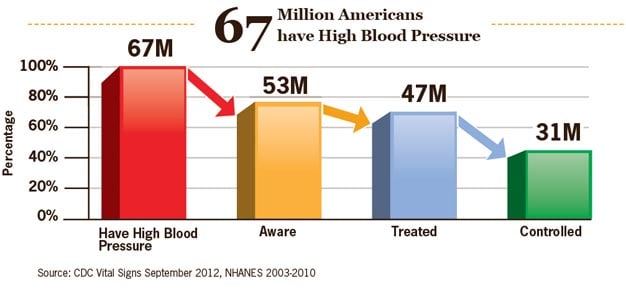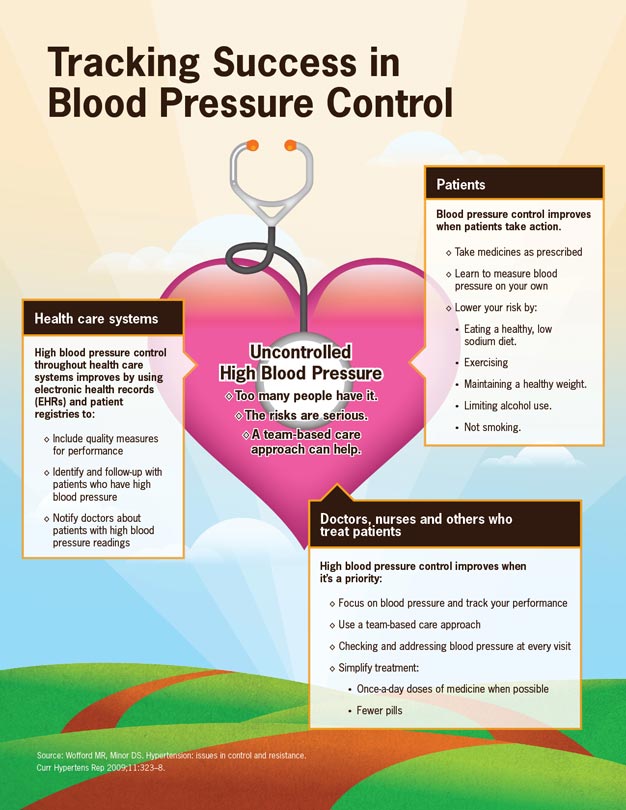Getting Blood Pressure Under Control
Many missed opportunities to prevent heart disease and stroke

High blood pressure is a major risk factor for heart disease and stroke, both of which are leading causes of death in the US. Nearly one-third of all American adults have high blood pressure and more than half of them don’t have it under control.* Many with uncontrolled high blood pressure don’t know they have it. Millions are taking blood pressure medicines, but their blood pressure is still not under control. There are many missed opportunities for people with high blood pressure to gain control. Doctors, nurses and others in health care systems should identify and treat high blood pressure at every visit.
*Blood pressure control means having a systolic blood pressure less than 140 mmHg and a diastolic blood pressure less than 90 mmHg, among people with high blood pressure.
Problem
Controlling blood pressure has to be a priority.
Why is blood pressure control so important to health?When your blood pressure is high:
- You are 4 times more likely to die from a stroke
- You are 3 times more likely to die from heart disease
Most people with uncontrolled high blood pressure:
- Know they have high blood pressure
- See their doctor
- Take prescribed medicine



No comments:
Post a Comment